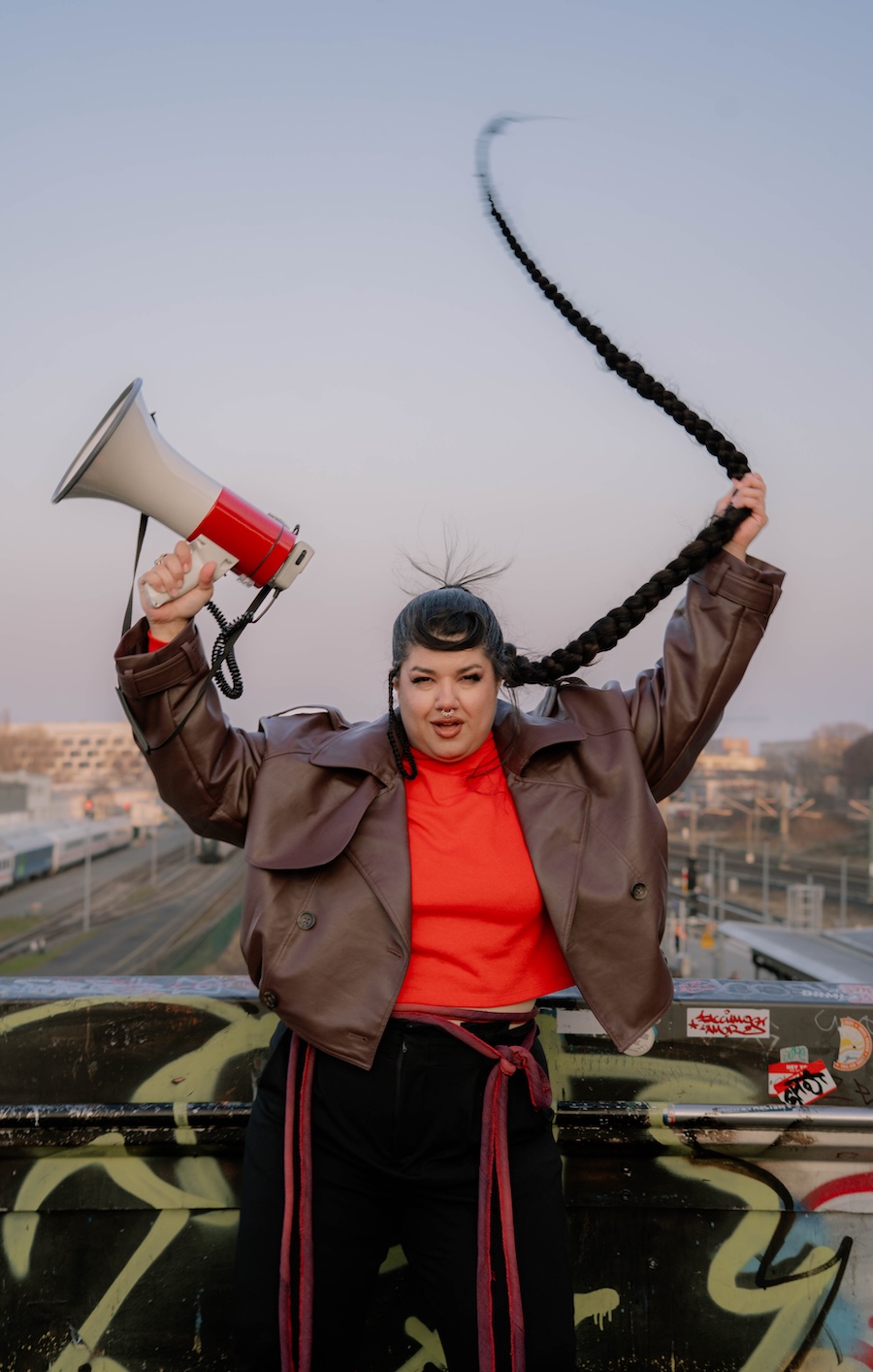
Save The Date! On May 11, 2025, the world will witness the rise of a remarkable artist as Faravaz releases her highly anticipated album, “Azadi” – a powerful homage to freedom in Farsi. This genre-defying record masterfully intertwines alternative pop with rich Eastern influences, resonating with a poignant message of empowerment and resistance.
Faravaz’s journey is as extraordinary as her music. In Iran, she faced imprisonment for the simple act of singing, labelled a threat by the oppressive regime. This harrowing experience did not break her spirit; instead, it fueled her determination to advocate for women’s rights and justice. Today, as she navigates the complexities of life in exile in Germany, Faravaz is on a mission to forge connections with a new audience, a task made more crucial by the daunting challenges faced by exiled artists.
The forthcoming release of “Azadi” will also coincide with a special concert at Berlin’s iconic SO36, where she will share her indomitable spirit on stage. Following this, she will take her music across Germany, with stops in Munich, Köln, Hannover, and Hamburg. Not to be missed, her performances will include the premiere of her compelling documentary, “The Orange Garden,” chronicling her imprisonment and the strength it took to reclaim her voice.
This conversation with Faravaz is a chance not just to dive into her remarkable story but to amplify the voices of those who dare to challenge oppressive systems. Don’t miss the opportunity to explore an artist whose music is a testament to resilience and hope in the face of adversity.
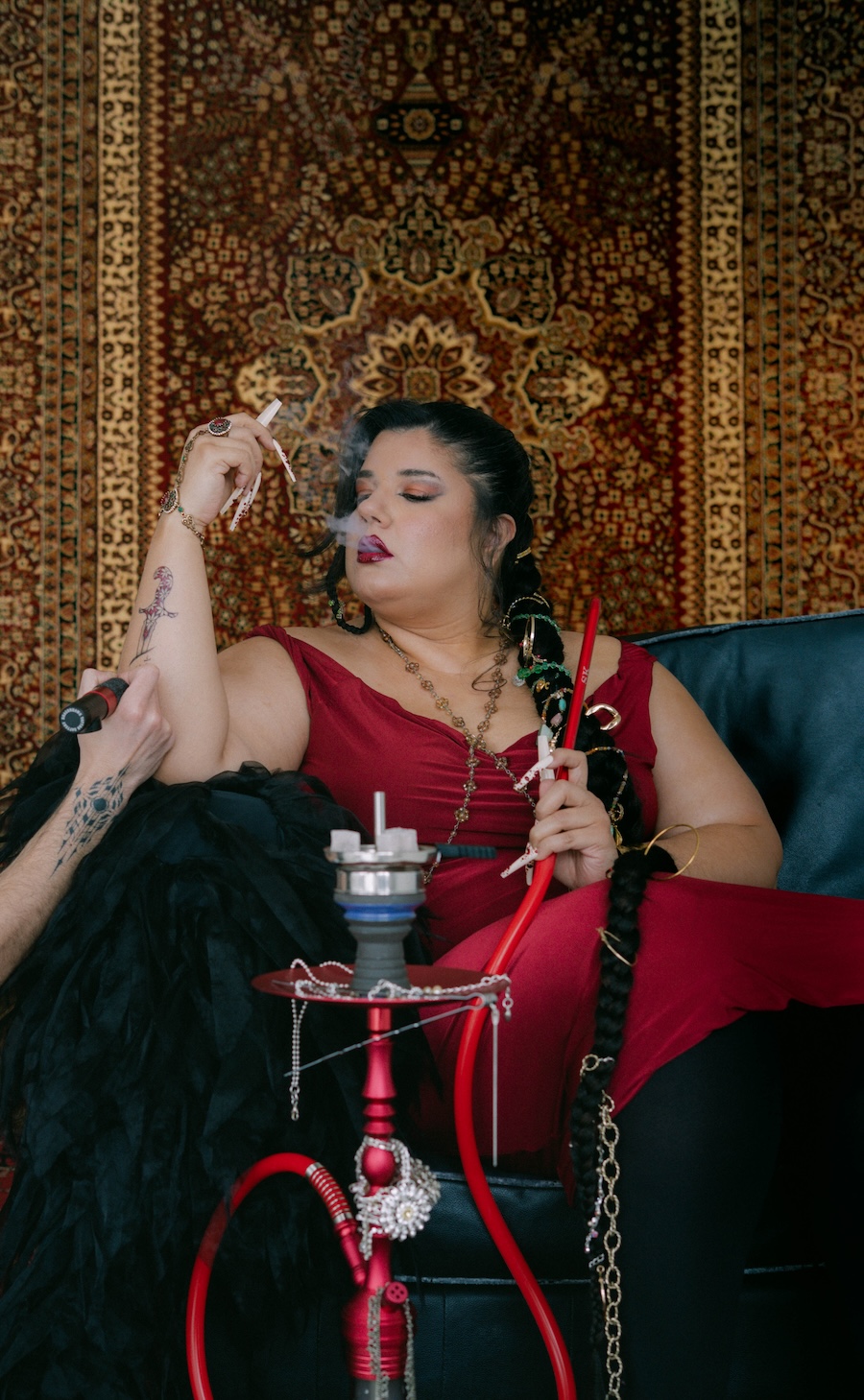
Get your tickets for the concert on May 11th HERE
Follow Faravaz: www.instagram.com/faravazmusic / linktr.ee/faravaz
Photos by Beyond Binary @_beyond.binary_
tattoo artist is @wantattEvent
FARAVAZ – CRIMINAL CHARGE: SINGING
A Night of Musical Rebellion
11.05.25 in Berlin, SO36
Sonntag 11.05.25
Einlass: 20:00, Beginn: 20:30
SO36, Oranienstraße 190, 10999 Berlin
Faravaz’s Story of Resistance
What inspired you to create your new album “Azadi,” and how does it reflect your experiences and heritage?
“Azadi,” which means “freedom” in Persian, was born out of a deep personal and collective need. As an Iranian woman who had to leave my home country to stay alive and have a voice, this album is both a tribute to the women who are fighting for equality and freedom and an expression of my journey through exile, identity, and resistance. It reflects the duality of pain and hope.
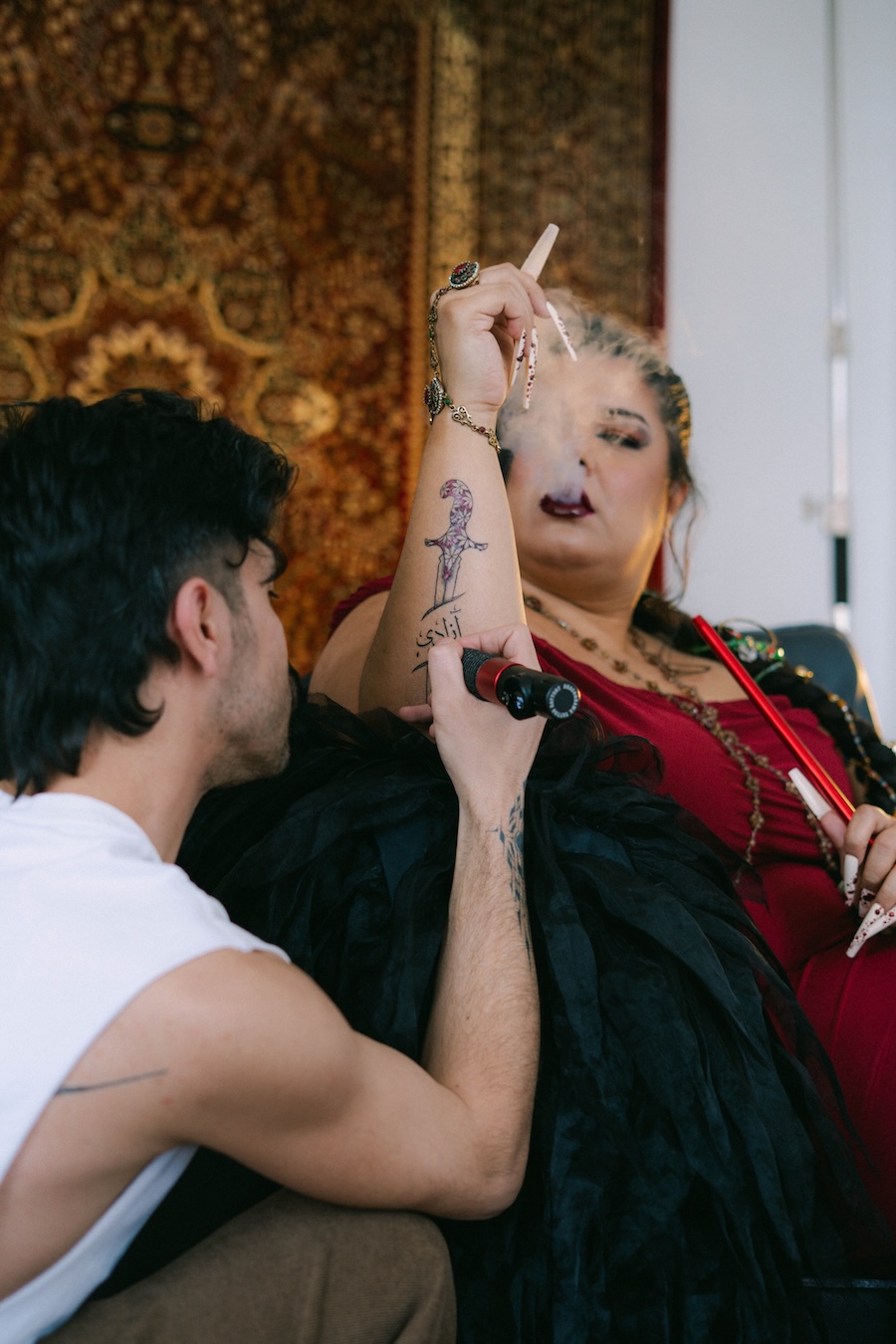
Can you tell us about the creative process behind blending alternative pop with Eastern influences in your music?
My sound is a reflection of my life, caught between two worlds. I grew up with traditional Persian melodies in my blood, but I’ve also been shaped by the global language of alternative pop. The fusion happens naturally. I don’t try to force genres together; instead, I follow my emotions, and I always let the stories find their sound!
Charlie McClean, an amazing British producer, helped me to make this dream true; she was two times Grammy-nominated. And her flexibility and knowledge helped me to make my dream come true.
This album is exactly what I always wanted to do. We laughed and cried while writing the songs and enjoyed every moment of working together, and I am sure people will feel it.
How do your past experiences in Iran shape the themes of empowerment and freedom in your songs?
I grew up in a system that tried to silence me as a woman, as an artist, and as an individual. But resistance is also part of our culture. Even singing in public was an act of defiance for me. Every song I write carries those memories—of protest, of fear, of longing. But more than anything, they carry a message: we are still here, and we are not forgetting our dreams!
What message do you hope listeners take away from “Azadi”?
I want them to feel courageous. To know that even in the darkest places, there is light. “Azadi” is not just about political freedom—it’s also about personal liberation: from fear, from shame, from silence. Whether you’re Iranian or not, I hope the music permits you to fight for your truth and who you deserve to be.
How does it feel to perform your music in Berlin, and what does this city mean to you as an artist?
Berlin gave me space to breathe again and to be who I am without thinking of judgmental eyes. It’s a city with a complicated history, full of artists, rebels, and misfits—so in many ways, I feel at home here. Performing in Berlin is cathartic. I can sing without fear. And yet, I carry all those who can’t with me on stage.
And Berliners are just the best audience, they exactly know what to do, they understand me sometimes better than myself.
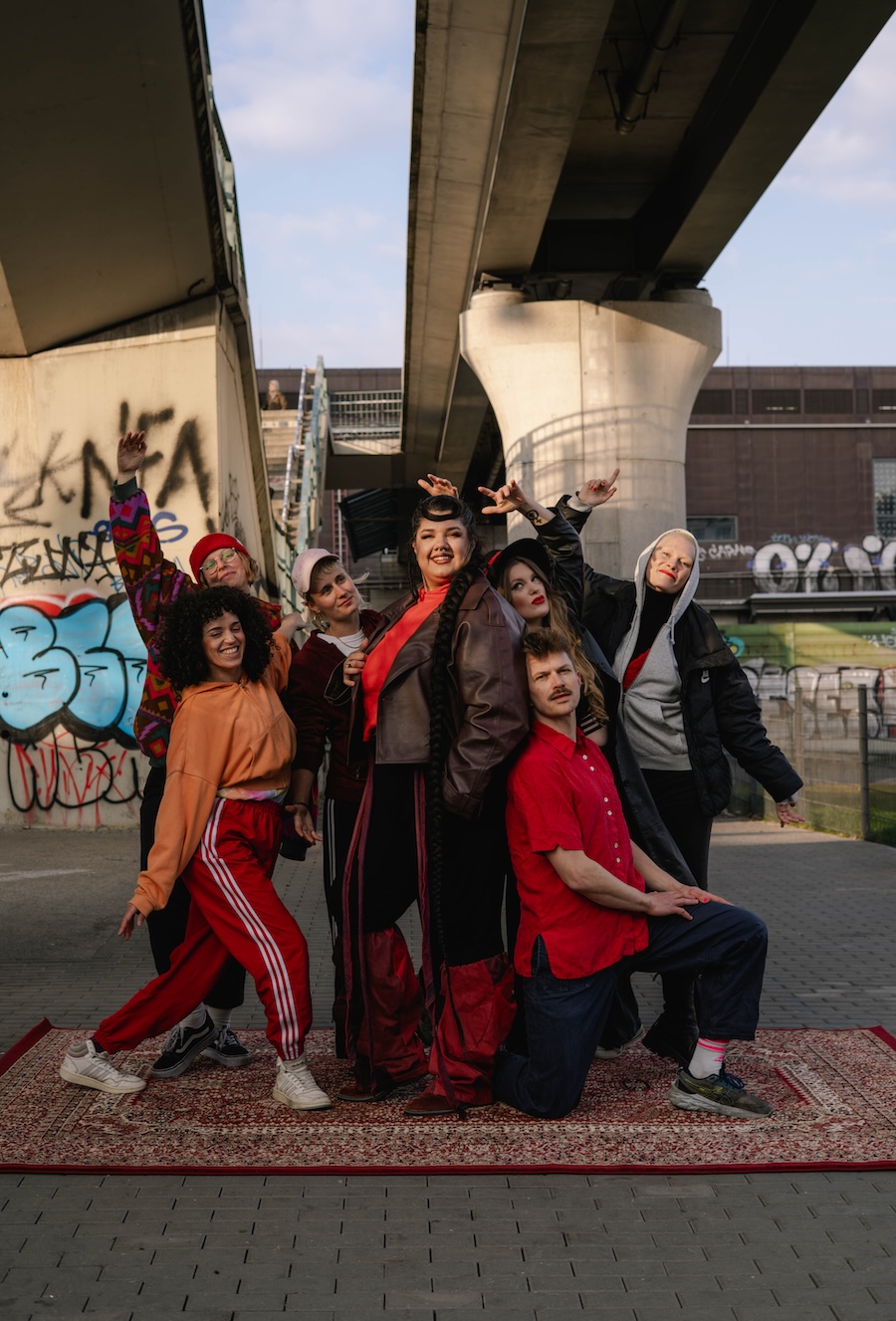
Could you share your thoughts on the importance of artistic expression in marginalised communities?
Art is survival. For marginalised communities, it’s a way to exist in a world that often tries to erase and censor us. It’s how we reclaim our narratives, preserve our culture, and imagine new futures. Censorship tries to control our bodies and minds, but art is where we stay free and do what we want!
What role does your heritage play in your music and identity as an artist living in exile?
My heritage is the foundation of everything I do. Even when I sing in another language or a different genre, that Persian spirit is always present. Living in exile means constantly negotiating who you were and who you are becoming. My music helps me stay rooted while also evolving.
How has your life changed since moving to Germany, and how does this influence your songwriting?
Exile is both a gift and a grief. I have the freedom to create, but I also carry the weight of those left behind. My songwriting has become more reflective, less about immediate pain, more about transformation, identity, and connection. I’ve also started collaborating with artists from different backgrounds, which has expanded my sound and perspective and made me feel at home wherever I am.
Can you tell us more about the documentary “The Orange Garden”? What can audiences expect to see in it?
“The Orange Garden” is a deeply personal documentary about exile, memory, and the search for identity. It follows my journey as an artist and an Iranian female singer in diaspora. Audiences will see not just the struggle, but also the resilience—the moments of joy, connection, and healing.
It is a very emotional documentary; be ready to have intense moments when you are watching it. We will screen the documentary on the 11th of May before the concert starts, but also the documentary will be published on New Yorker Times in around 2 months.
Why did you choose to launch your album at SO36, and what significance does this venue hold for you?
SO36 has a long history of resistance and subculture—it’s where voices from the margins get amplified. Launching “Azadi” there felt symbolic. It’s not just a venue; it’s a space where music becomes movement, where rebellion becomes celebration.
Also, my concert is not just a concern, it is a freedom performance with amazing guest artists. It will be a very special night. Don’t miss it. 11th of May at club So36.
How do you envision your music coecting with both Iranian and international audiences?
Emotions are universal. Even if you don’t understand the words, you can feel the truth in them, but the album is also in English for Iranians; it’s a reminder that they’re not alone. For international audiences, it’s an invitation to witness, to listen, to stand in solidarity. Music can build bridges across even the deepest divides.
I believe we, flinta and queer people always suffer from one thing which is patriarchy, doesn’t matter where we are!
And I am sure you will feel empowered and healed when you listen to Azadi.
What challenges have you faced in rebuilding your platform as an artist in a new country, and how have you overcome them?
Everything had to start from zero—new language, new audience, new industry. It was isolating at times. But I leaned into community, into collaboration. I stopped trying to fit into the system and focused on creating something honest. Slowly, the right people found the work.
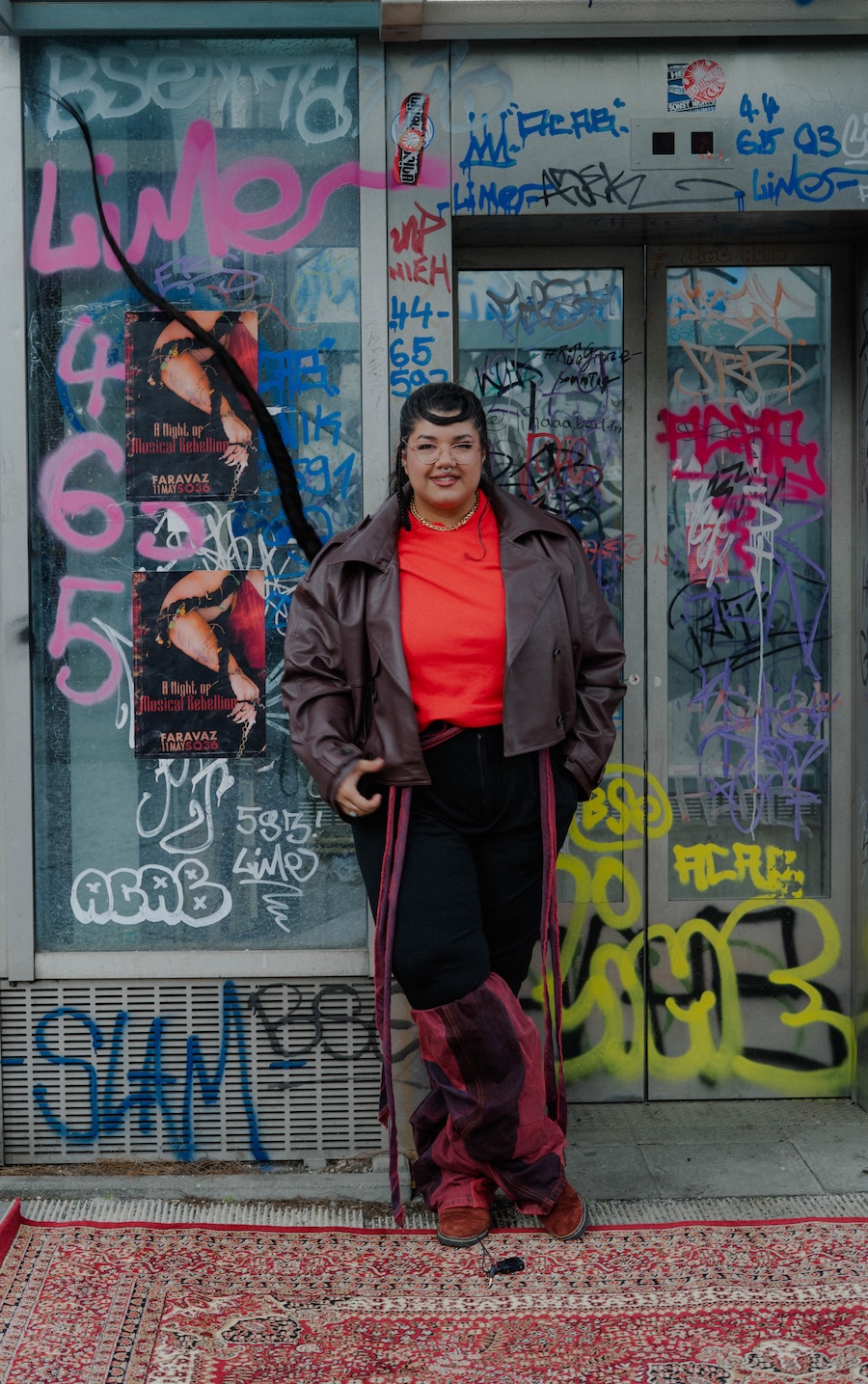
How do you use your music as a form of activism, particularly for women’s rights and freedom of expression?
Simply existing as a female Iranian singer is political. But beyond that, I use my platform to amplify voices, to raise awareness, to challenge stereotypes. Every performance, every song, every interview is a chance to say: we matter. We will not be silenced.
And my organisation, “The Right To Sing”, supports Iranian singers in different ways.
Looking ahead, what are your hopes for the future of your music career and your ongoing activism?
I hope to continue creating fearlessly—to keep telling stories that matter, to keep connecting with people across borders. I want to collaborate more, mentor younger artists, and build platforms for voices that need to be heard. Music can change hearts—and when enough hearts change, so can the world.
Also I hope pop music platforms and festivals share their space with queer, flinta and people of color more and more. because we are all human, and as I say in one of my songs, which is called “Habibi, Habibi, come dance with us
Just under our skin, we’re one!

